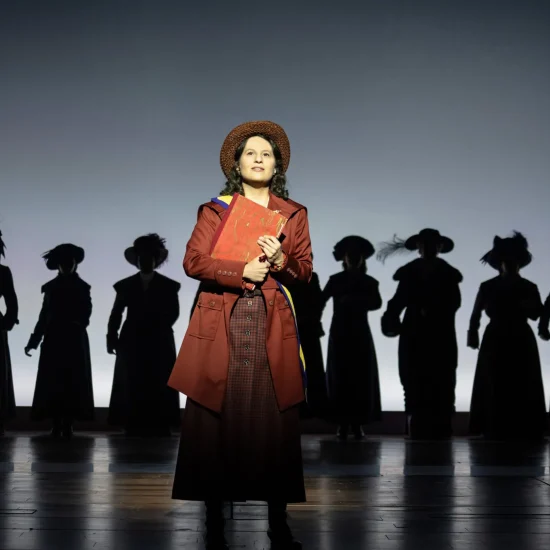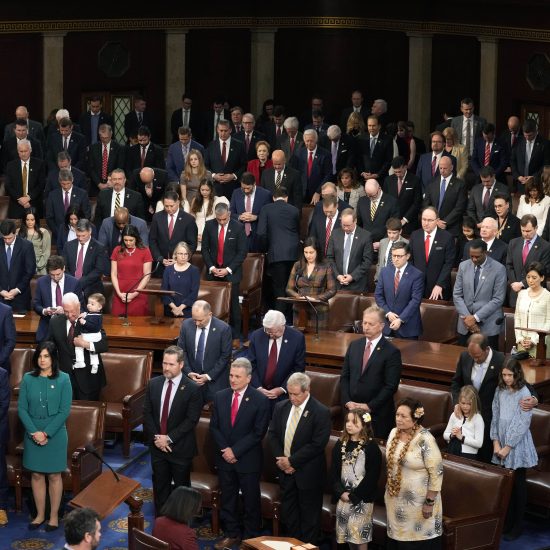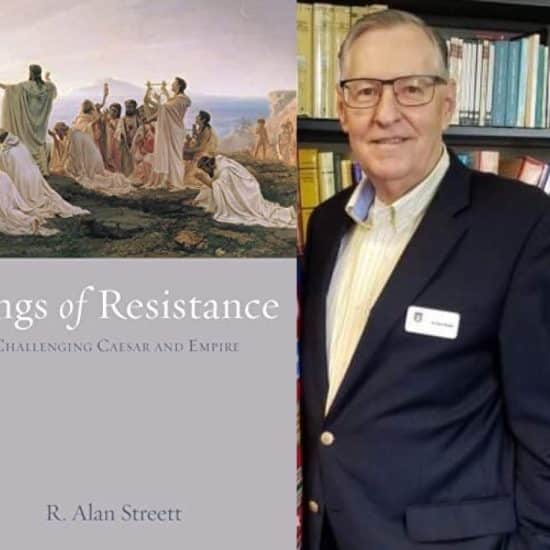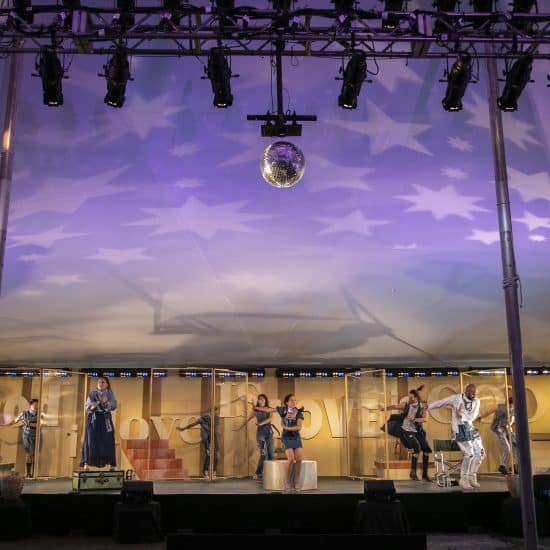WACO, Texas — Terry York is willing to bet that if he goes into a Baptist church, sits down and listens, he can tell — long before the preacher speaks — whether the congregation is theologically conservative or moderate.
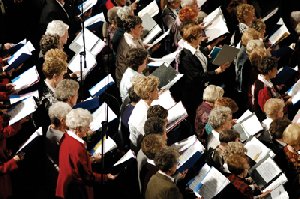 |
The tip-off is in the tunes, said York, associate professor of Christian ministry and church music at Baylor University’s Truett Theological Seminary.
“It’s a little insider family secret — a signal, although it’s not foolproof,” York said. “The hymnal serves as a statement of faith. It matters, even if they don’t use it.”
Throughout their history, Baptists have resisted having a written creed or book of common prayer, said York, who has written hymns for Baptist hymnals and was project coordinator of the 1991 Baptist Hymnal.
“When Baptists get crosswise, they either have to admit they’re singing from the same statement of faith or go to different books,” York said. “You know they all want to sing ‘Amazing Grace,’ but it gets hairy after that.”
So, it’s significant an alternative songbook to the Baptist Hymnal — the first in recent history — will be published in 2010, York said. The songbook — Celebrating Grace — will be heavier on hymns than on praise choruses that have become popular in churches in the past several years.
Center and right Baptists in the 15-million-member denomination likely will use the Baptist Hymnal, put out by LifeWay Christian Resources in Nashville; center and left will probably use Celebrating Grace, produced by Mercer University in Atlanta, York predicted.
That’s because churches that are more conservative theologically generally are more liberal musically, with services heavy on praise choruses. Meanwhile, traditional hymns typically are staples in moderate congregations, York said.
“It doesn’t compute, but the conservatives tend to be more populist, painting with a broader brush, wanting you to feel a certain thing,” said David Music, professor of church music and graduate program director of Baylor’s School of Music. “More moderate churches want you to leave thinking a certain way.
“Of course, you also can have very conservative congregations that, come heck or high water, are only going to use the good old hymns, the old gospels.”
Traditionally, hymns consist of stanzas in which the words vary but the music stays the same. They are sometimes punctuated by repetitive choruses in which words and music remain consistent.
Praise choruses, often projected on a screen rather than in a hymnal’s musical score, tend to be simpler and more repetitive.
Then there are modern worship songs, often including a solo. Because of the greater musical range and intricacy, they can be tough for worshippers, York said.
Despite the two hymnals’ varying emphasis on musical styles, “they’ll have more in common than different,” he said. “‘Blessed Assurance’ and ‘Just As I Am’ show they are indeed still Baptists. The differences are over interpretation of doctrine, although some of the split is purely musical preference.”

No caption submitted
|
Some hot-button theological debates — such as whether Scripture is inerrant and whether women should be ordained — will not be blatant in the hymnals.
“I don’t think you’ll find any that are pro or con inerrancy,” Music said. “And I can’t think of a single hymn that speaks of the ordination of women. You want to avoid partisanship, even if you’re aiming at a niche.”
What’s telling is how a song holds up over time. William May, dean of Baylor’s School of Music, said that throughout history, “when you engaged with God, it was an offering of your very best — best clothes, best attitude and even, in the Old Testament, the best animal you sacrificed.
“Today, the philosophical notion is that made it elitist,” he said. “Now we want everyone to be comfortable, visit with friends, get a cup of coffee…. But if I don’t know the tunes and I have to sit through five repetitions to learn, that’s just as elitist as people who said Bach in church was elitist.
“If the music in the church is only the slide on the wall that says, ‘God is awesome’ and ‘Jesus is cool,’ then some may be prepared to worship, but others, like me, may not be so moved.”
York said that hymns “keep on trucking. There have been challengers, like the praise choruses of the 1970s and 1980s, often played by younger generations who want to make current worship songs.
“Challengers usually fail,” York said. “But the best of those stick and get the name ‘hymn.’ ”
Examples include “Since Jesus Came into My Heart,” initially scorned for being too much like “dance music,” and “I Love You, Lord,” criticized for having too few words, too few chords and too much repetition.
Whatever Baptists believe church music should be, compiling a hymnal is a huge task.
Revisions of the Baptist Hymnal, with more than 600 songs, are done about every 15 years after massive surveys of church leaders and members about hymns they sing, hymns they do not and hymns they want to add.
Equally difficult was the task for Celebrating Grace. Those who selected hymns included pastors, theologians, music ministers, laity and professors of church music, said Music, one of five editors.
“We want it to be a practical book that people will actually use, but also challenging so people can grow into it, not out of it,” he said.
“I think hymns are more effective than almost any means of teaching Scripture. We’re more likely to remember words and concepts when they’re set to music. There’s a blend of emotion and passion, rhyme and meter with repetition.
“If a preacher preaches the same sermon repeatedly, the preacher is going to be looking for a new job. But people don’t mind singing a hymn again and again.”

